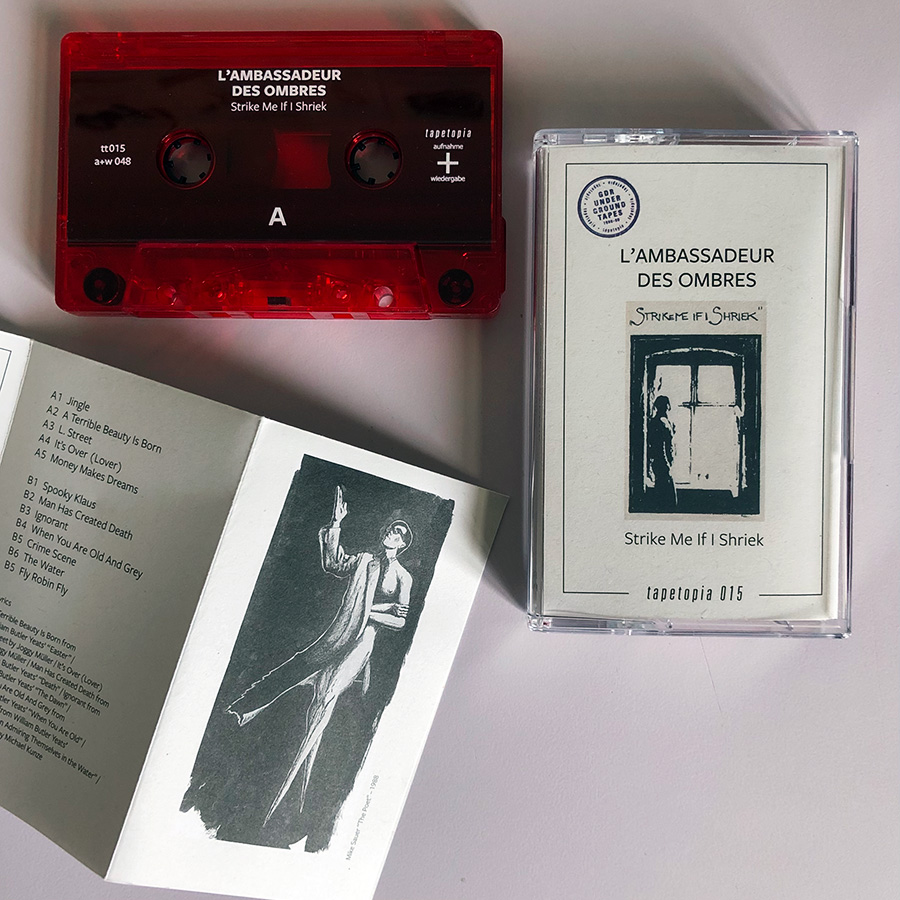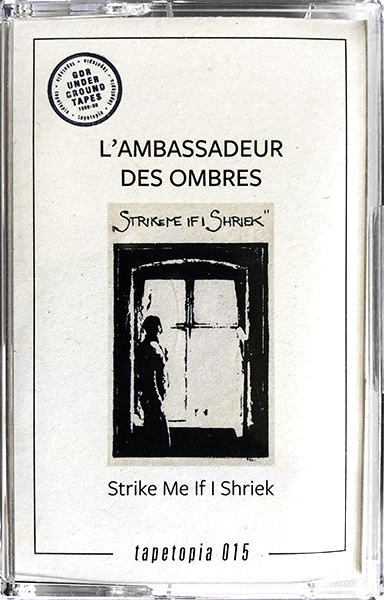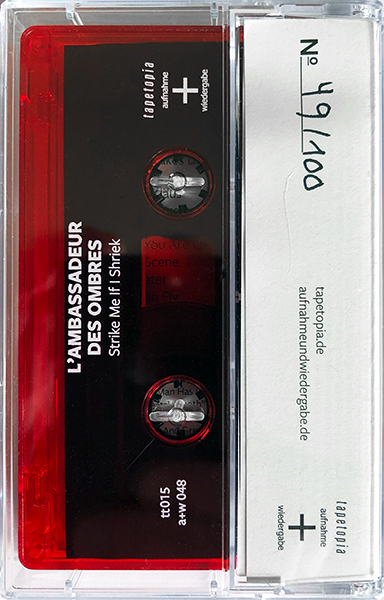 The name L’Ambassadeur des Ombres goes back to the French science fiction comic Valérian et Laureline. The series’ sixth episode in particular had an inspiring effect on Jörg ‘Joggy’ Müller, who founded the band together with René Glofke: L’Ambassadeur des Ombres, Ambassador of the Shadows. This title heralded darkness and morbidity and would serve as the name for a band project branching out from the East Berlin post-punk underground of the 1980s. The Ambassadors of the Shadows combined pop appeal and experimentation as the soundtrack to the zero hour of their generation in the GDR’s waning days. In the short time of their existence in 1988/89, L’Ambassadeur des Ombres did not give a single concert.
The name L’Ambassadeur des Ombres goes back to the French science fiction comic Valérian et Laureline. The series’ sixth episode in particular had an inspiring effect on Jörg ‘Joggy’ Müller, who founded the band together with René Glofke: L’Ambassadeur des Ombres, Ambassador of the Shadows. This title heralded darkness and morbidity and would serve as the name for a band project branching out from the East Berlin post-punk underground of the 1980s. The Ambassadors of the Shadows combined pop appeal and experimentation as the soundtrack to the zero hour of their generation in the GDR’s waning days. In the short time of their existence in 1988/89, L’Ambassadeur des Ombres did not give a single concert.
L’Ambassadeur des Ombres were less a band than an open ensemble of various East Berlin scene clusters: Joggy Müller played bass in the popular indie band Die Vision. With L’Ambassadeur des Ombres, he was the ambassador of the catchy. René Glofke, keyboardist and singer of experimental and multi-media synth-pop luminaries Neuntage, represented a more left-field approach. For the lyrics, René Glofke would draw on the works of Irish romantic William Butler Yeats, whose volumes of poetry he tended to carry around with him. This appropriation was necessary since L’Ambassadeur des Ombres’ own attempts at lyrics were in a rather creative English of East Berlin provenance. It can be heard on songs such as “L. Street”, “It’s Over (Lover)” and “Ignorant”, which are characterised by a certain obliqueness, while a feeling for harmony is clearly present. L’Ambassadeur des Ombres’ approach to pop also comprises the somnambulistic slow-motion cover of “Fly, Robyn, Fly”, a number-one hit by the disco-queen trio Silver Convention from 1975.
in Joggy Müller’s former childhood room on Kollwitzstraße, Prenzlauer Berg, Berlin, the songs of Strike Me If I shriek were recorded. “Our music-making was actually over coffee and cakes”, says Müller. His mother provided the coffee, cakes and cookies while the musicians tossed about ideas. One came up with a keyboard melody, the other with a guitar run. In the chaotic room full of instruments, pop with a workshop character was created. Strike Me If I Shriek was circulated on cassette among friends and musicians only as an on-request work report – it’s a long overdue discovery.
(from the liner notes by Robert Mießner)


